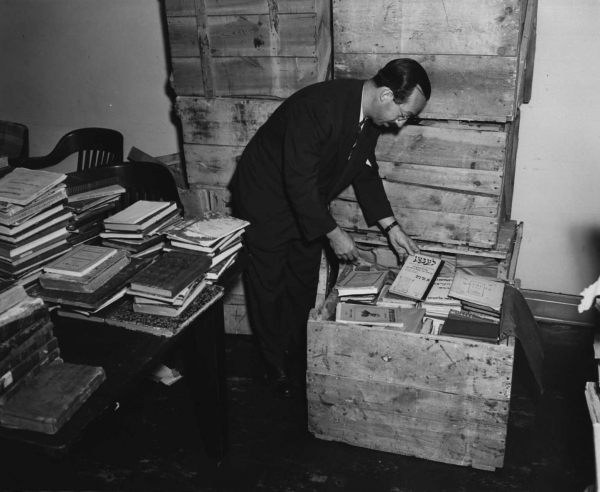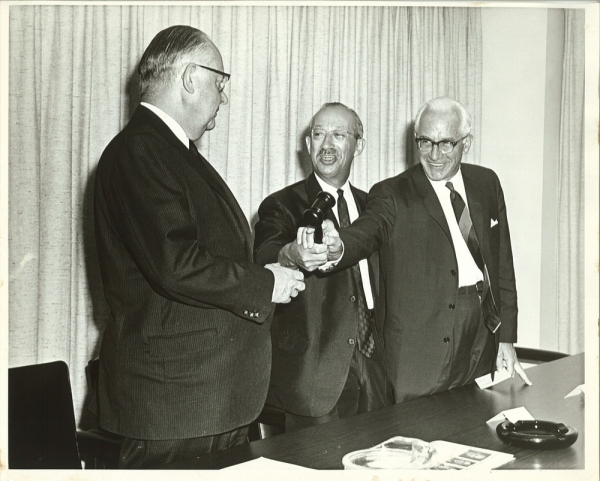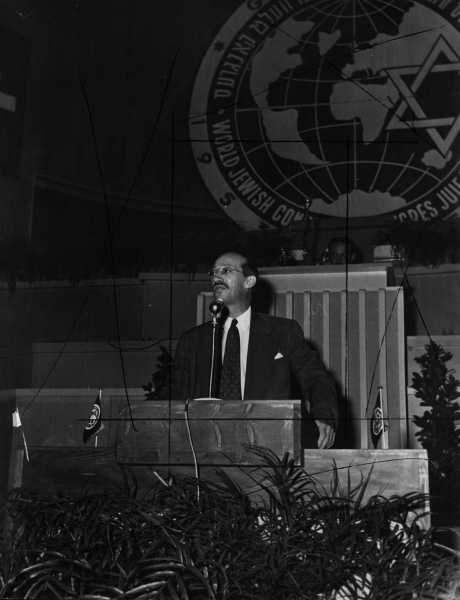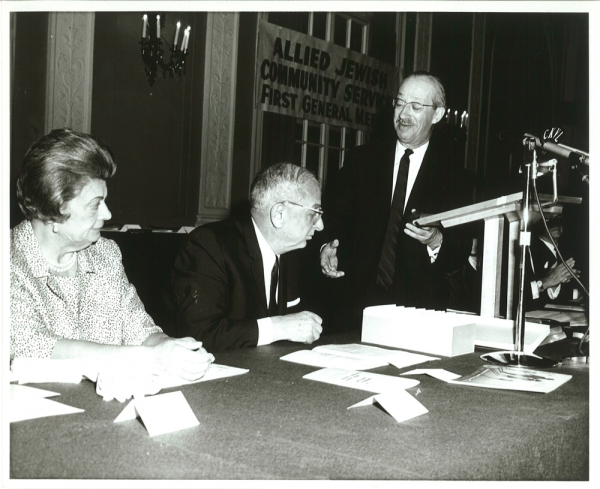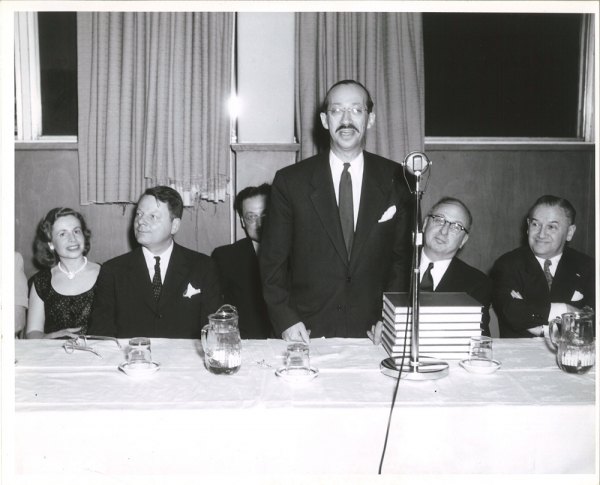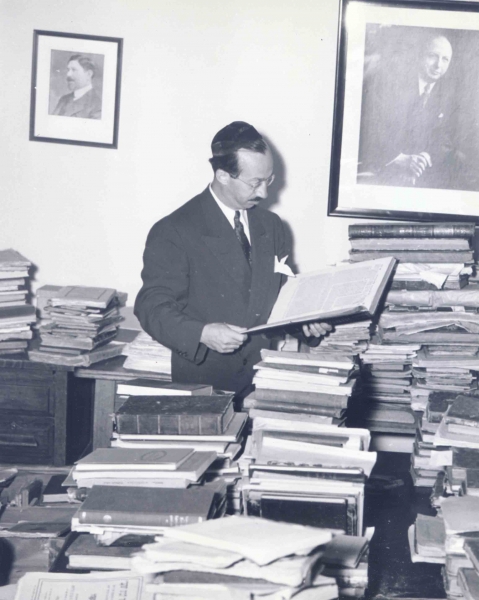Rabbi Lavy Becker - Dorshei Emet
1960 - 1967
5170 Van Horne
Rabbi Lavy Becker (1905-2001) is best known in the Montreal community for having founded the city’s first Reconstructionist synagogue, Dorshei Emet, in 1960. The Reconstructionist movement is based on the ideas of Mordecai Kaplan, who viewed Judaism as a civilization in constant evolution, responsive to modernity and focused on the concept of community.
Born in Montreal to Russian immigrant parents, Becker was among the founders of the Orthodox Young Israel synagogue in 1921. After completing his studies at McGill, he studied to become a Conservative rabbi in New York, where he came into contact with the Reconstructionist teachings of Kaplan. Becker was very active in the Jewish community as a social worker and rabbi. In 1945, he served as director of displaced persons camps in Germany for the Joint Distribution Committee. Then, in 1951, he founded Congregation Beth-El (located in the Town of Mount Royal), Montreal’s first Conservative synagogue to have mixed seating.
Among other appointments, Becker served as President of the Allied Jewish Community Services of Montreal (1963-1965), National Executive Committee Chair of the Canadian Jewish Congress (in the 1960s) and Chair of Small Communities for the World Jewish Congress. He was also the Director of the Vanier Institute of the Family and held a number of other positions in the international and local Jewish community. As well, he was involved in the business of his brothers, who in 1929 acquired the Rubenstein Brothers Company, an equipment manufacturer formerly owned by the figure skating champion and local politician Louis Rubenstein.
Compiled by Valérie Beauchemin, translated by Helge Dascher
Links
Liens
Lavy M. Becker - CJHNSources
Arnold, Janice. “Reconstructionist Founder Subject of a Video.” The Canadian Jewish News August 12, 2004.
Azrieli, David J. Rekindling the Torch: The Story of Canadian Zionism. Toronto: Key Porter Books, 2008.
“History.” Congregation Dorshei Emet.
*Images courtesy of the Canadian Jewish Congress Charities Committee National Archives and the Jewish Public Library Archives.


This project is funded in part by the Government of Canada.
Ce projet est financé en partie par le gouvernement du Canada.
Ce projet est financé en partie par le gouvernement du Canada.
This project is funded in part by the Government of Canada.
© 2011-2015 Museum of Jewish Montreal, All Rights Reserved.
Site by Air Code Design inc. ![]()
© 2011-2015 Musée du Montréal Juïf, Tous droits réservés. Site par Air Code Design inc. ![]()
